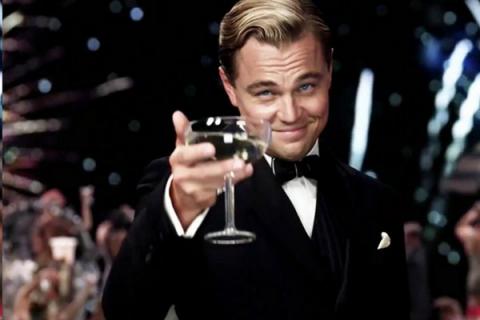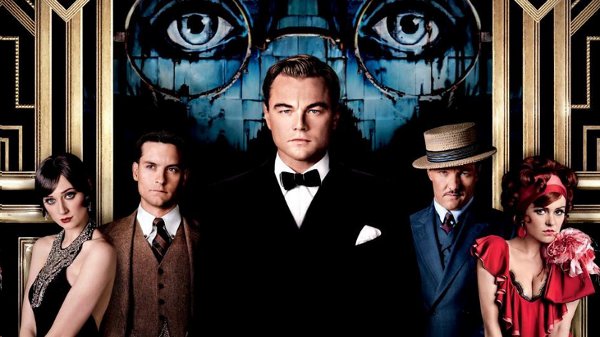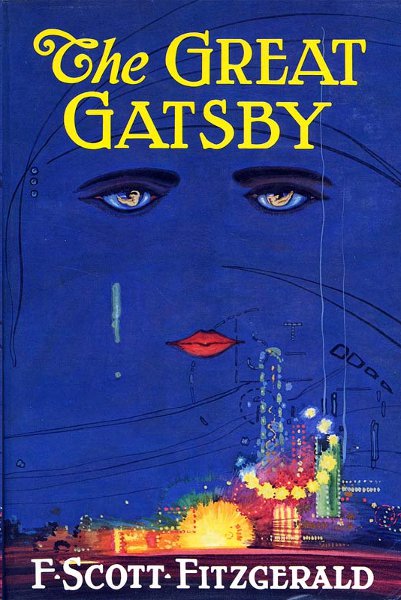‘The Great Gatsby’ and the Loss of Hope and Innocence of an Era

The Great Gatsby is one of those books that Americans had to read in high school, one that everyone professes they actually liked. Telling someone that you love The Great Gatsby doesn’t really say anything about you, in the same way that Nick Carroway’s opening spiel about how he was taught not to judge people is ambiguous and forgettable.
F. Scott Fitzgerald’s novel about the nouveau riche in 1920s America has aged well. Fitzgerald, along with Ernest Hemingway, is probably the most celebrated American modernist writer. But unlike Hemingway, he often receives derision from those who think that his portrayal of American life focuses too exclusively on the rich, on glamour and the bourgeoisie. Though its wide appeal may be due to its lavish settings and sensual, exorbitant subject matter, Fitzgerald does show disdain for the wealthy socialites who grace his pages. Nick Carroway, the bland and detached narrator, is the only character who exhibits any sort of intellectual prowess in the novel, and his lyrical observations of the so-called ‘Jazz Age’ are not pleasant.
Hollywood’s 1974 production of The Great Gatsby was stale, proving to be an excellent example of how great works of literature often pale in comparison to the books that they are based on. Bibliophiles always turn down their nose on favorite works that are turned into commercial movies, but this has more to do with a belief that the written word is a superior artistic medium. There’s really no point in comparing the differences between a film and the book. Literature does things that film cannot, and vice versa.
A film robs you of imagining the world of a novel as you want to, while a novel cannot as accurately capture the televisual world we now live in. Part of Gatsby’s appeal is its depiction of a time when the American dream was a promising ideal, when the U.S. was not, as Horace from Sam Lipsyte’s The Ask (2010) puts it, a “fat, demented pimp.” The Great Gatsby was written when the U.S. was on the upswing, and now that the nation is in decline, it makes sense that there will be nostalgia for the ‘good-old days’.

It’s no surprise, then, that the latest film adaptation of The Great Gatsby is a bloated, overhyped mess. As the American Dream becomes more illusory, assertions that it still exists become more vehement. But our dreams may be all that we have in the end, and for all its insipid glamour, the film is a captivating feast for the eyes, the ideal Hollywood blockbuster that captures the audience within the fictive world that it presents on screen.
Overall, Baz Luhrmann’s The Great Gatsby is mediocre. Some have criticized the film’s attempt to modernize the plot’s distinct Jazz Age setting, however, it’s the execution that fails, not the idea. The world of Gatsby is radically changed temporally, but, more significantly, it is turned into a shiny, commercial nightmare that takes the vapid qualities Fitzgerald saw in his generation and multiplies them. Though it was not intended to be, the film could be read as a vicious satire of the popular notion of the book. Yet, the film is visually dazzling, and has enough redeeming qualities to make it worth warching for the curious fan.
The first 20 minutes of the film are over-edited, which creates a dizzying effect. This presents a threat to the thematic and stylistic tone of the rest of the film. But the overdone editing eventually settles down, and the film, to a degree, becomes less of an overbearing gimmick. Luhrmann has directed films like Moulin Rouge! and Romeo & Juliet so his taste for the extravagant is expected. A common critique of this latest adaption of Gatsby is its soundtrack, a bizarre combination of rehashed period music from the 1920s, music from contemporary artists like Jay-Z and Lana Del Ray, as well as standard, melodramatic ballads that accompany some of the more sentimental moments in the film.

The idea itself, of mixing contemporary music within the soundtrack, is not an inherently bad one, but it creates a strange effect that makes the film feel like its set in a dystopian future where the government is obsessed with the culture of the ‘20s. Archival footage attempts to ground the film in its historical context. Although most of the footage is fascinating to watch, it feels forced amidst the shiny, spotless world these characters inhabit. Images of war are from a distant world, where suffering occurs beyond the melodrama of Daisy and Gatsby’s affair, or Nick’s psychological problems and subsequent need to see a psychiatrist (which is, at least explicitly, absent from the novel).
Two separate scenes, one of an orgiastic gathering in Tom’s uptown apartment, and another, of the first Gatsby party shown in the film, feature modern tunes literally jazzed up for their use here. These scenes come across as satirical takes on the so-called ‘Jazz Age’ written by a teenager for his/her high school English class. Act out a scene from the book with your own spin on it, said the teacher. Again, there is a lack of cohesion introduced by these glamorous soirees, of scenes which demand elegance (though mostly an illusion of it) rewritten in the style of the next book to be read in class, Brave New World. The use of spectacle here serves no purpose beyond wooing the audience.
Nice guys finish last, or so the pop-wisdom adage goes. Tom Buchanan, a despicable jerk and the husband of the woman whom Gatsby is in love with, is the embodiment of ignorance allied with power, which James Baldwin described as the most ferocious enemy of justice. While Gatsby floats around dead in his beautiful swimming pool, Tom stays with his beautiful wife. Buchanan does not even really care much for his wife, and his behavior reveals an ugly truth about desire and hope, one that this romanticized version of the film hides. Desire, or hope, enables; it inspires, it offers the possibility of transcendence; but it also blinds and distorts.

Perhaps the positive side of hope, of desire, is a lot closer to the way we see the world most of the time. Unbeknownst to the cynic, who’s too busy exposing the fraud to realize that it might have something pleasant to offer (however detached from reality it may be). In our desires to be God, like Gatsby, we lose sight of the cold, hard reality of our lives. Like the determined old sport whose passion drives the story, we create fictions, spend lifetimes in search of fame, wealth, love, or creativity, never admitting to ourselves that they won’t make us happier.
Describing his feelings towards Daisy’s idealized view of the West Egg in the novel, Carroway observes, “It is invariably saddening to look through new eyes at things upon which you have expended your own powers of adjustment.” Similarly, Gatsby’s obsessive, blind hope for love with Daisy may limit his conception of his own freedom, but it protects him from the hard reality of his life. A dream so powerful cannot be so easily dismissed, or easily ignored. This latest film adaptation may fail to deliver in many respects, but it does capture the magnitude of Gatsby’s vision, a magnitude that is accentuated by the alluring nature of the film and its bombastic visual effects.
Author Bio:
John McGovern is a contributing writer at Highbrow Magazine.





























































































































































































































































































































